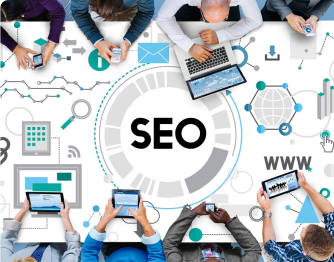In today’s competitive digital landscape, businesses strive for growth by leveraging various online marketing strategies. Among these, Search Engine Optimisation (SEO) and Pay-Per-Click (PPC) advertising stand out for their unique strengths and contributions to digital marketing success. However, the real magic happens when these two strategies are integrated, creating a synergistic effect that can significantly amplify business growth.
The Synergy Between SEO and PPC
SEO and PPC, while often viewed as separate strategies, can be powerfully complementary. SEO focuses on optimising your website to rank higher in organic search results, which builds credibility and generates long-term traffic. PPC, on the other hand, involves paid advertising, offering immediate visibility and targeted reach. Together, they cover a wide spectrum of the search landscape.
A notable example is a retail company that uses both SEO and PPC to dominate search results for their product categories. By using SEO to rank organically and PPC to appear in ad spaces, they can capture a larger share of the search results page real estate, leading to a significant increase in both traffic and sales.
Strategic Keyword Management
Achieving harmony between SEO and PPC begins with strategic keyword management. The goal is to identify which keywords are best suited for organic optimisation and which should be targeted through PPC campaigns. This balance helps in maximising visibility while optimising spend.
Utilising tools like Google’s Keyword Planner and SEMrush can provide insights into keyword performance and competition. The integration of these tools allows for a comprehensive approach to keyword strategy, ensuring that both SEO and PPC efforts are aligned and mutually reinforcing.
Unified Content Strategy
A unified content strategy ensures that all content serves both SEO and PPC objectives. This approach involves creating content that is not only keyword-optimised but also compelling enough to engage users who click on PPC ads.
An e-commerce brand can unify their content strategy by creating in-depth product guides. These guides can optimise their SEO to attract organic traffic, while also being used as landing pages for their PPC ads, resulting in increased engagement and conversions.
Analysing and Leveraging Data
Data analytics play a crucial role in fine-tuning both SEO and PPC strategies. By analysing data from Google Analytics and PPC campaign reports, businesses can gain insights into user behaviour, conversion paths, and the overall performance of their keywords and content.
For example, a B2B company can use data analytics to identify high-performing keywords in their PPC campaigns and incorporate them into their SEO efforts. This can lead to improved organic rankings for those keywords, while also enhancing the effectiveness of their PPC campaigns.
Integrating SEO and PPC is not just about running two campaigns side by side; it’s about creating a cohesive strategy that leverages the strengths of each. Best practices include:
- Continuous analysis and realignment of keywords across both platforms.
- Developing content that simultaneously supports SEO and PPC goals.
- Using data from both SEO and PPC to inform overall strategy decisions.
By effectively integrating SEO and PPC, businesses can achieve more comprehensive search visibility, drive more traffic, and ultimately accelerate their growth. This synergy not only enhances the effectiveness of each approach but also leads to a more robust and resilient online presence.
If you have any questions regarding SEO and PPC do not hesitate to contact us.










